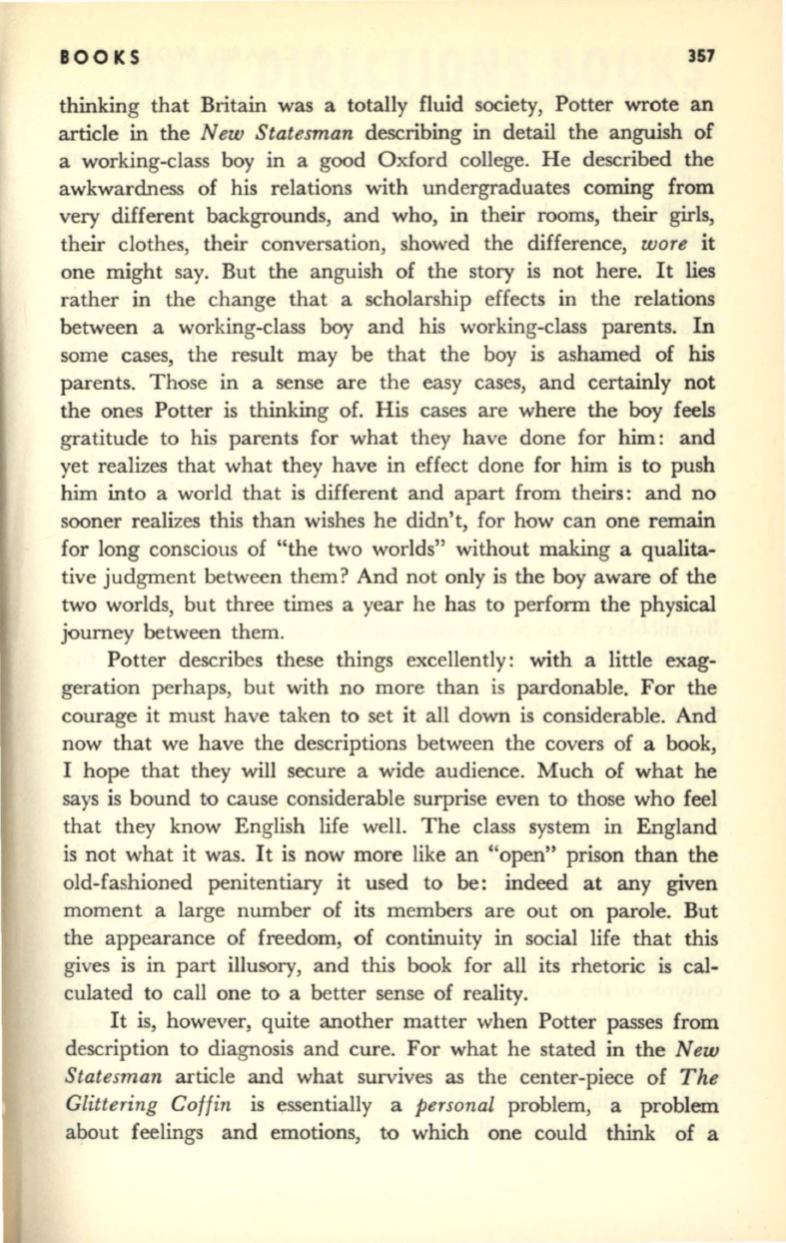
BOO KS
357
thinking that Britain was a totally fluid society, Potter wrote an
article in the
New Statesman
describing in detail the anguish of
a working-class boy in a good Oxford college. He described the
awkwardness of his relations with undergraduates coming from
very different backgrounds, and who, in their rooms, their girls,
their clothes, their conversation, showed the difference,
wore
it
one might say. But the anguish of the story is not here. It lies
rather in the change that a scholarship effects in the relations
between a working-class boy and his working-class parents. In
some cases, the result may be that the boy is ashamed of his
parents. Those in a sense are the easy cases, and certainly not
the ones Potter is thinking of. His cases are where the boy feels
gratitude to his parents for what they have done for him: and
yet realizes that what they have in effect done for him is to push
him into a world that is different and apart from theirs: and no
sooner realizes this than wishes he didn't, for how can one remain
for long conscious of "the two worlds" without making a qualita–
tive judgment between them? And not only is the boy aware of the
two worlds, but three times a year he has to perform the physical
journey between them.
Potter describes these things excellently: with a little exag–
geration perhaps, but with no more than is pardonable. For the
courage it must have taken to set it all down is considerable. And
now that we have the descriptions between the covers of a book,
I hope that they will secure a wide audience. Much of what he
says is bound to cause considerable surprise even to those who feel
that they know English life well. The class system in England
is not what it was. It is now more like an "open" prison than the
old-fashioned penitentiary it used to be: indeed at any given
moment a large number of its members are out on parole. But
the appearance of freedom, of continuity in social life that this
gives is in part illusory, and this book for all its rhetoric is cal–
culated to call one to a better sense of reality.
It is, however, quite another matter when Potter passes from
description to diagnosis and cure. For what he stated in the
New
Statesman
article and what survives as the center-piece of
The
Glittering Coffin
is <:!ssentially a
personal
problem, a problem
about feelings and emotions, to which one could think of a


